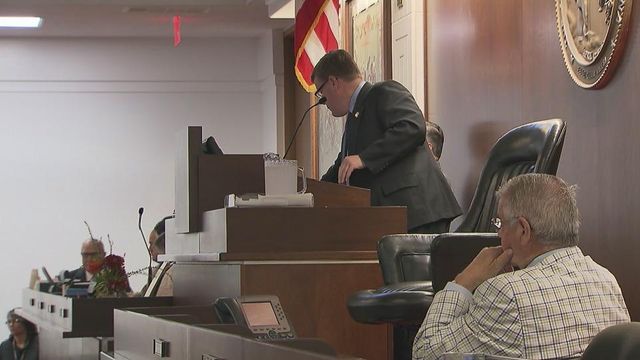House approves increase for fund to lure jobs, investment
The compromise plan, worked out with Senate leaders late last week, increases funding for the Job Development Investment Grant, or JDIG, program from $15 million to $20 million a year.
Posted — UpdatedThe compromise plan, worked out with Senate leaders late last week, increases funding for the Job Development Investment Grant, or JDIG, program from $15 million to $20 million a year. It adds an optional $15 million boost to the program for "high-yield" employers that will invest at least $550 million in a facility, a provision aimed at mega-site companies such as auto or airline manufacturers.
The compromise also expands the aircraft fuel tax exemption to cover any airline with a hub in the state, continues the motor fuels tax break and slightly expands the data center energy tax exemption.
The bill also continues the One North Carolina grant fund but tightens the rules so wealthier counties would be eligible for less help from the state than poorer counties would be.
A string of Republicans spoke out against the measure, beginning with Rep. Paul "Skip" Stam, R-Wake, who said the real cost over time of the JDIG funding – "the big enchilada in this whole thing" – will likely be around $400 million.
"For $400 million, we could build a lot of roads, we could extend water, we could extend sewer, and we would get 10 times the economic activity we’ll get from this bill," Stam argued.
Rep. Larry Pittman, R-Cabarrus, called the bill "a misappropriation of funds" and "an obscenity."
"Stealing from the people to give to your cronies to keep yourself in power – that’s what it boils down to," Pittman said, predicting the North Carolina Chamber would target him for saying so. "My mama taught me, if you knew something was wrong, no matter what the reason, you don’t do it. I believe incentives are wrong."
Rep. Gary Pendleton, R-Wake, said he objected to "the extortion and blackmail" by state Senate negotiators.
"We need to set priorities. Is it really a priority to do this and the other tax cuts we’ve done, and then state employees and teachers get nothing?" Pendleton asked.
"I support fairness, and I don't see fairness in these incentives," said Rep. Carla Cunningham, D-Mecklenburg, saying that her high-poverty area of Mecklenburg hasn't benefited from the program. "I would like to see us invest in the people of North Carolina by training them."
House Minority Leader Larry Hall said the bill more than doubles the minimum number of jobs – from 20 to 50 – that a business must create to be eligible for economic incentives. He said Republican leaders should have invested the $445 million budget surplus in education and infrastructure to make the state more attractive to employers of all sizes but opted for a tax cut instead.
"Now we say we're going to give money to companies to get them to overlook that. That's probably not going to work," Hall, D-Durham, said. "We're hustling backward."
But Rep. Charles Jeter, R-Mecklenburg, said voting the bill down would be shooting the state in the foot, highlighting big recruitment victories in South Carolina and Alabama that involved rich incentives packages.
"We talk about this as if we’re in a vacuum, and we’re not," Jeter said. "We can put our heads in the sand and act like it doesn’t matter, or we can do something to put North Carolinians who want to work back to work by giving them a chance to compete in our region."
Rep. Shelly Willingham, D-Edgecombe, said his county had been in the running for most of those big projects but that company executives who ultimately chose other states had expressed concern about "all the uncertainty we had here in Raleigh" on incentives.
Rep. Jean Farmer-Butterfield, D-Wilson, said she was anti-incentives when she was first elected but changed her mind over the years at the urging of local leaders and economic developers in her district.
"If you're going to run with the big dogs, what you got to do?" asked Rep. Elmer Floyd, D-Cumberland.
"I believe the answer to the gentleman's question is 'Get off the porch,'" chuckled House Speaker Tim Moore.
Rep. Charles Graham, D-Robeson, said the plan "is a working-class bill. It supports families. It supports people who are out there looking for opportunity and hope. And if you're in a rural county like mine, you have lots of those individuals.
"I hope this gives us some advantage. Lord, we need it," Graham added.
After about two hours of debate, the proposal won tentative approval, 84-24. Senators signed off on the bill Monday and Tuesday with little debate.
The House is scheduled to take a final vote on the measure Wednesday. It will then go to McCrory, who is expected to sign it.
Related Topics
• Credits
Copyright 2024 by Capitol Broadcasting Company. All rights reserved. This material may not be published, broadcast, rewritten or redistributed.






